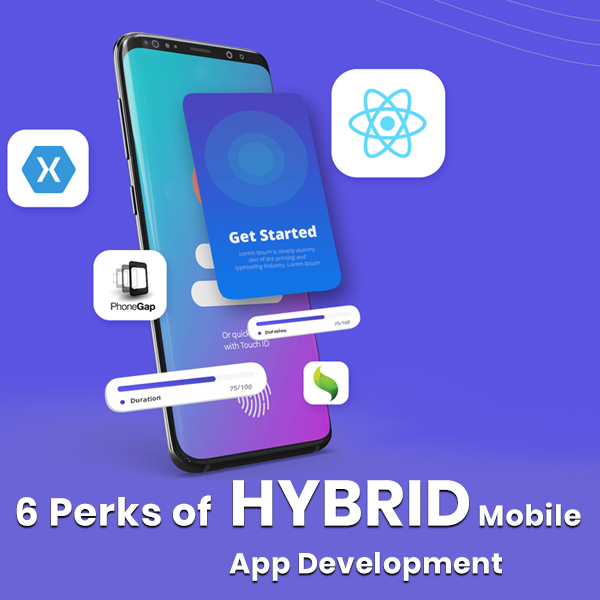Hybrid mobile applications are comparable to ordinary apps in the sense that they are installed on a device. What distinguishes them is that they blend elements of native apps, which are software created for a specific platform such as iOS or Android, with components of web apps, which are websites that operate like apps but are not installed on a device and are accessed via a browser on the Internet.
For the time being, there is no universal approach to software development. There are three types of application development available: native, hybrid, and web-based. Hybrid apps are the best option among these options because they offer several benefits. First and foremost, the app you develop should meet the needs of your target audience. To make the best out of it, hire the best Hybrid Mobile App Development Agency to have a great user experience.
How do hybrid apps work?
Hybrid apps are similar to Web apps, but they are downloaded to the device in the same way as native apps are. HTML5, CSS, and JavaScript are commonly used in hybrid apps, just as they are in Web apps. In hybrid apps, code is run inside a container. The device’s browser engine renders HTML and JavaScript, while native APIs access device-specific hardware.
Although the navigation elements of a hybrid app are frequently similar to those of a Web app, the app’s ability to work offline is decided by its features. It is possible to make an application run without database support if it does not require it.
Every sort of development has advantages and disadvantages. The following are six reasons why hybrid development is so popular among businesses all over the world.
1. Efficient User Experience.
The most important factor for app developers is the user experience. There are almost 4.5 million applications available, according to data. With so many competitors in the app market, developers must deliver perfect products to stand out from the crowd and attract the most potential customers. Web-based applications, on the whole, don’t provide a fantastic user experience across all platforms. On the other hand, hybrid mobile apps are similar to native apps but have a simpler backend structure. You may quickly modify and improve the material for a variety of platforms. When users of hybrid apps use other platforms, they frequently don’t perceive a difference. They’re easier to make than native apps, and they’re just as functional.
Also Read: Top 5 Lessons About Digital Marketing To Learn Before You Hit 30
2. High speed.
When building an app, speed is also crucial. No matter how good the information is, nobody will use an app if it takes too long to answer. One of the significant problems of native apps is this. However, hybrids offer a viable solution to this challenge by giving a seamless and lightning-fast experience. Thanks to a lightweight user interface, the material, graphics, and even enormous images may all be loaded rapidly. Furthermore, hybrid apps are faster than web-based applications since they do not rely on the network connection and may provide high performance even when multiple users try to access it at the same time.
3. Reduced Costs.
The most prominent advantage of hybrid mobile app development is this. Developers don’t need to create a new application for each platform. A single codebase is used to produce everything. This method allows you to save money, which is particularly crucial for small businesses on a tight budget.
4. It helps you save time.
You not only save money, but you also improve the process. This is particularly critical if you want to get your MVP to market faster than your competition. Hybrid apps have a shorter time to market than traditional applications. Furthermore, you present your software on many app stores at the same time, allowing you to reach out to a more significant number of people right now. If you are a tiny start-up, it is the most excellent option.
5. Offline Assistance.
APIs are also used by hybrid applications to store data offline. As a result, consumers can save money on data prices. It’s important to remember that some devices lack good connectivity or the ability to use an app offline. As a result, usability will be significantly improved. This is a crucial tool for people who have limited network connections, among other things.
Also Read: How to Remove the Junk and Cache Files from your Windows
6. There is room for innovation.
Hybrid apps strive to be as near to native apps when it comes to functionality. They are complex and have a lot of functionality when paired with the operating system. And all without incurring any additional costs. Developers can come up with more innovative concepts and attract a target audience’s attention.
Creating a hybrid mobile app is a fantastic opportunity in today’s industry. Before deciding to build a hybrid app, a Hybrid Mobile App Development Company must consider several elements to produce a digital product that will satisfy its future customers and the expected business results.
